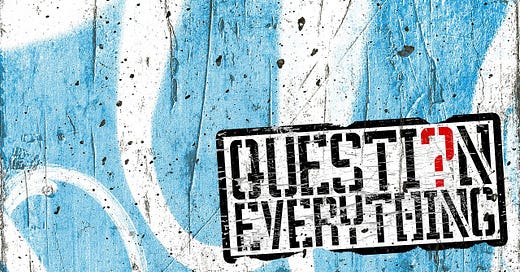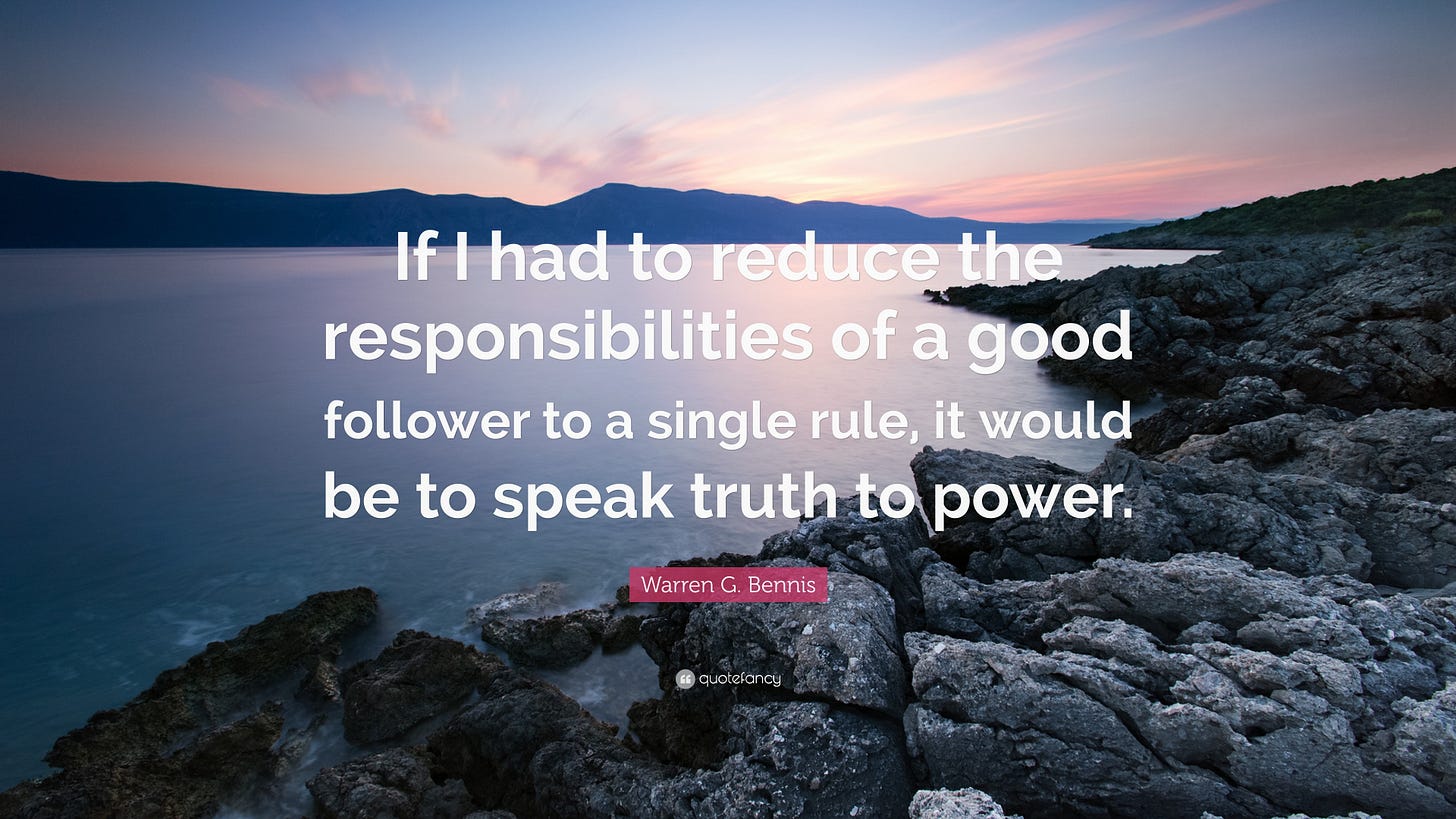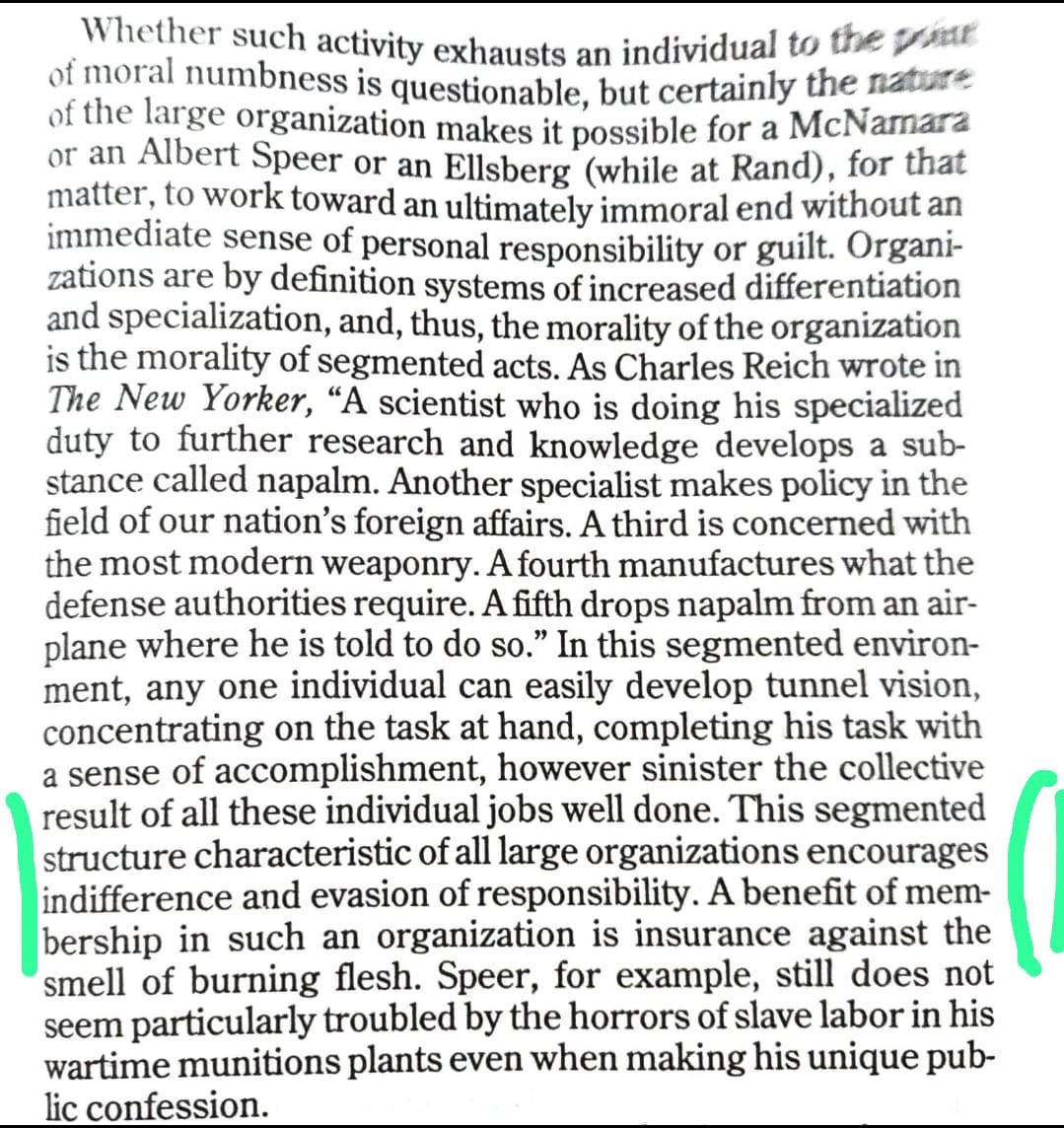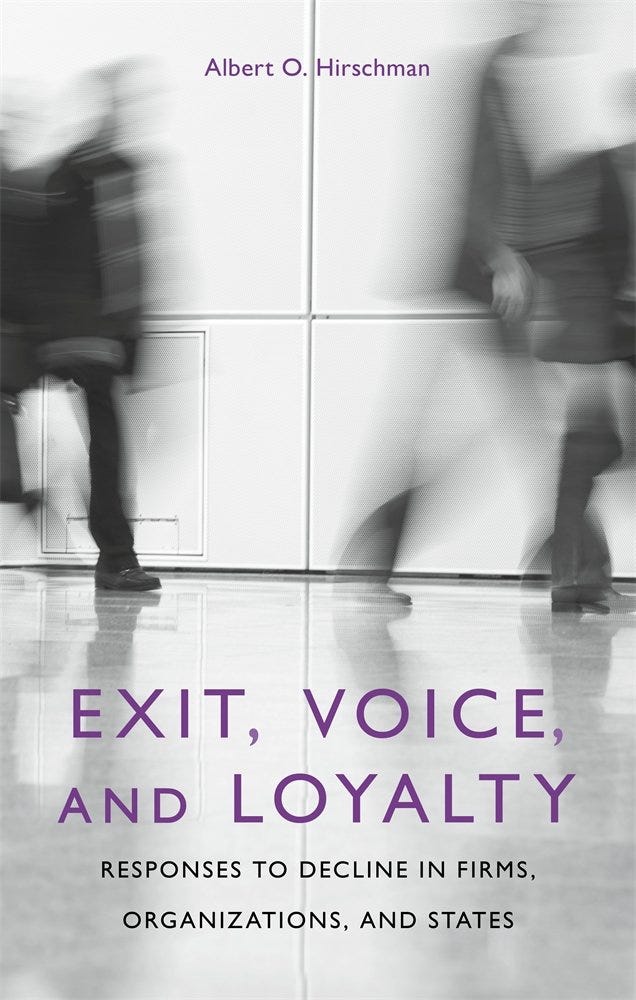#NotJust Obedience: Does(n't) our Duty Require us to Question as well?
Reflections on the nature and meaning of our duties at work and in life, and what this means for our relationship with power and authority
Hello Dear,
“Just focus on doing your duty. Your duty is to do what you have been asked to do”.
I presume there would have been many occasions in life where we may have been given the above advice or direction. We are more likely to have heard this, if we have worked in a bureaucratic setup or organization. And indeed, like we have observed earlier, bureacuracy, after all, is everywhere, including in the family, and more generally in society as well. So, chances are that we have been served this advice even in non-work situations and contexts.
Yes, I too believe that we should do our duty. My doubt, however, has been:
What precisely is our duty? How do we know what our duty is?
In other words, is the mere act of someone asking us to do something sufficient to define our duties? If we have been asked to do something, even if it is by those who have been given authority over us, does that always mean that it is our duty to do so?
Is it not possible for those in authority to give wrong instructions? It could be either due to bona fide errors of judgement, or due to malafide intent, or maybe even absence of intent or thinking - due to thoughtlessness, or a combination of these and numerous other forces which stand in the way of exercising right judgement. Could it not be so, could this not happen?
Now, if we accept that we are all fallible, and thus that people in high positions of power and authority too are prone to making mistakes, what responsibilities does this situation place on the shoulders of others in “the system”, those who are being instructed to follow certain orders?
Are they dutybound to follow orders, whatever they may be, without questioning them in the least? Or are they allowed to question the wisdom of the instructions they receive? Or are they rather dutybound to question?
This reflection reminds me of the words of Warren Bennis, late author and leadership researcher.
"If I had to reduce the responsibilities of a good follower to a single rule, it would be to speak truth to power." - Warren Bennis
And here itself lies one of the biggest dangers of a “bureaucratic” culture, where words and actions are chosen to please, in line with prevailing power dynamics, rather than out of a commitment to the truth or to positive institutional change in the larger good. And one dominant behaviour which such a culture can imbibe among its members is nothing but habitual silence - not only verbal, but cognitive, intellectual, emotional, moral and spiritual silence - leading almost invariably to apathy at institutional if not individual levels too.
Here’s an example which shows the dangers of such silence or thoughtlessness.
“The morality of the organization is the morality of segmented acts....encouraging indifference and evasion of responsibility. A benefit of membership in such an organization is insurance against the smell of burning flesh." - Warren Bennis
The above is an excerpt from an essay titled “When to Resign” written by Warren Bennis, more than 50 years ago, in 1972.
Here is another excerpt from the above essay, which highlights how large or otherwise bureaucratic organizations encourage conformity even when their survival is at stake.
The striving of organizations for harmony is less a conscious program than a consequence of the structure of large organizations. Cohesiveness in such organizations results from a commonly held set of values, beliefs, norms, and attitudes. In other words, an organization is also an appreciative system in which those who do not share the common set, the common point of view, are by definition deviant, marginal, outsiders.
Ironically, this pervasive emphasis on harmony does not serve organizations particularly well. Unanimity leads rather quickly to stagnation which, in turn, invites change by nonevolutionary means. The fact that the organizational deviant, the individual who “sees” things differently, may be the institution’s vital and only link with, for lack of a better term, some new, more apt paradigm does not make the organization value him any more. Most organizations would rather risk obsolescence than make room for the nonconformists in their midst. This is most true when such intolerance is most suicidal, that is, when the issues involved are of major importance (or when important people have taken a very strong or a personal position). …But when it comes to war or peace, life or death, growth or organizational stagnation, fighting or withdrawing, reform or status quo—desperately important matters —dissent is typically seen as fearful. Exactly at that point in time when it is most necessary to consider the possible consequences of a wide range of alternatives, public show of consensus becomes an absolute value to be defended no matter what the human cost.
Say you and I are in such a situation. How should and do we respond? I find this to be a very interesting question. In this context, let me recommend a classic book (which I first discovered in the above essay by Bennis) titled Exit, Voice, and Loyalty: Responses to Decline in Firms, Organizations, and States, written in 1972, by economist Albert O. Hirschman. [I read this book in 2021, I think, and loved it; I started rereading it recently].
Let me stop this rather quick piece of reflection, with unanswered questions, rather than with unquestioned answers. Either way, I believe that every organization and community (whether it be a professional community or otherwise) needs to find ways and means of continually discovering and rediscovering its soul. In more concrete terms, every community and group of people need to have mechanisms for deciding what is right and what is not for them, and how to stick to and live by their core values and principles.
Maybe we can hope that the crises we face provide us renewed energy and inspiration to engage in shared reflections which help throw light on these ways of being and becoming. Or no?
Here are some previous articles, which are closely related to our discussion for today.
Are We Seeking Approval to Be and Do Good?
Reflections on our societal and organizational culture of seeking and giving approvals, and how this can often hinder our progress.
Do Actions Really Speak Louder Than Words?
Reflections on the popular dichotomy between actions and words, and the problems & opportunities inherent in the cultural bias for action.
#NotJust "Following": A Case for Thinking, Reflection and Listening
Reflections on the need for thinking for ourselves, for engaging in shared reflections on our shared past, present and future.










